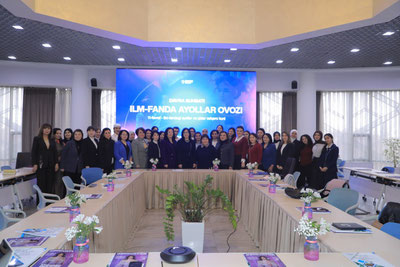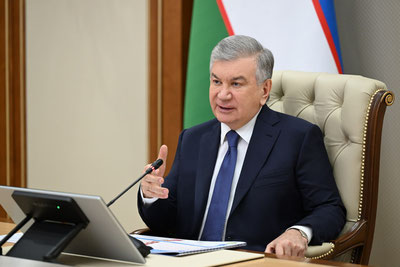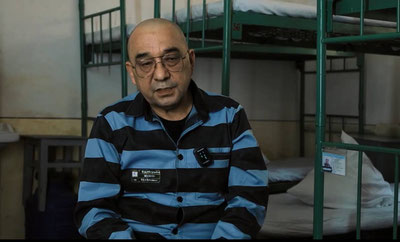At the briefing held by AOKA, the head of the Information Service of the Ministry of Higher Education, Science, and Innovations, Nazokat Abdulkunduzova, answered the most frequently asked questions by citizens and representatives of the public regarding the termination of the extramural form of education:
Admissions to higher and vocational education institutions for enrollment began on June 5. According to the President's Decree PF-81, the admission process to the bachelor's degree programs of universities is carried out in two stages — “first test, then competition”.
According to the President's decree PF-76 dated May 5 this year, admissions to the extramural form of education will be terminated starting from the 2025/2026 academic year. This requirement applies equally to both state and private (non-state) universities.
What was the initial purpose of introducing the extramural education system, how well has it justified itself up to the present day, and why is it being terminated?
ANSWER: The extramural form of education was reintroduced in 2018, with the main aim of providing citizens who are engaged in labor activities but do not have higher education, the opportunity to receive education without having to leave their jobs. This system primarily served to meet the educational needs among the older population, thereby enhancing their qualifications and competitiveness in the labor market.
The re-introduction of the extramural education system significantly increased coverage with higher education among the youth and older population. Providing education opportunities to working citizens in various regions yielded positive social and economic results.
However, over time, issues related to the effectiveness of obtaining education in this form, academic discipline, quality control, and depth of knowledge, adherence to higher education standards became evident.
It is for these reasons, starting from 2025, with the aim of further enhancing the quality of higher education in our country, strengthening the disciple-mentor traditions in the educational process, and enforcing a teaching system based on practical skills, the extramural form of education is being gradually phased out.
How will students currently studying in the extramural form continue their education?
ANSWER: Although admissions to the extramural form of education will be ceased starting from the 2025/2026 academic year, all educational processes for students currently enrolled in this form will continue as planned. That is, they will have the opportunity to complete their studies according to the existing state education standards, curricula, and subject programs.
Higher education institutions are responsible for organizing educational activities for these students properly, providing necessary information resources and practical exercises. This guarantees the quality of education for each student and ensures they graduate as specialists with adequate knowledge and skills.
What will happen to the specialists who have completed their education in the extramural form? Will they face any problems in official employment? Can they be refused by employers?
ANSWER: Individuals who have received their education in the extramural form and obtained their diplomas in the established order are considered fully qualified specialists according to the legislation of the Republic of Uzbekistan. Their diplomas have the same legal force as those obtained through full-time, evening, or distance education forms.
Therefore, there are no legal barriers to officially employing such specialists in the state or private sector. Employers should evaluate them based on their knowledge, skills, and professional capabilities, not the form of education they received.
The competitiveness of specialists who have completed the extramural form of education in the labor market largely depends on their practical experience, level of knowledge in the field, and continuous self-improvement.
How will the gap left by the termination of extramural education be filled? What form of education will be offered to applicants with specific job positions?
Although admissions to the extramural form of education will be ceased from the 2025/2026 academic year, the opportunities for working citizens to obtain higher education will not be limited. In the future, alternative forms of education, including distance, evening, and condensed daytime (part-time) education, will be developed and expanded gradually.
This will allow applicants with specific job positions to combine work and study simultaneously. Distance education will be organized using modern information and communication technologies, enabling students to gain knowledge without having to visit the educational institution in person.
Evening education will be conducted after work hours, offering a convenient schedule for working individuals to receive education.
Governmental organizational and legal mechanisms in this area are being perfected, with curricula being adjusted to meet demands and ensuring the quality of education.
Can a student studying full-time in the first year transfer to the extramural form in the next academic year? What about those in higher years?
Based on the applications of students, there is an opportunity to transfer their studies to available extramural groups according to the established order. Students are required to register for the transfer within the designated timeframe and procedure.
Will the extramural form of education remain for obtaining a second degree? Or is it also being closed?
ANSWER: Starting from the 2025/2026 academic year, admissions to the extramural form of education will be completely terminated, and this applies to all areas of education, including obtaining a second degree.
In this regard, new admissions to the extramural form of education for a second degree will not be conducted. For those wishing to pursue education in this direction, existing educational trajectories in the daytime, distance, or evening forms of education are recommended.
However, individuals who were admitted to the extramural form for a second degree in previous years will continue their studies in the established manner.
How and when will the condensed daytime (part-time education) form of education be implemented?
The Ministry of Higher Education, Science, and Innovations, together with the National Agency for Education Quality Assurance and interested executive state bodies and economic associations, have been tasked with developing the legal documents for the condensed daytime education form, taking into account advanced foreign experiences.
The condensed daytime education form (part-time education) — is a modern and convenient education format that allows students to continue their job-related activities while receiving education based on the daytime education system, where education and work are balanced harmoniously.
After the development of legal documents, specific measures for the implementation and development of this education form will be carried out.
What are the requirements for organizing distance education, how many HEIs currently offer this form of education, and which applicants can apply for it?
ANSWER: The Regulation on the Organization of Distance Education in Higher Education Institutions was approved by the Decree of the Cabinet of Ministers of the Republic of Uzbekistan No. 559 dated October 4, 2022. This regulation defines the specific requirements and standards for organizing and implementing distance education.
Currently, 21 state higher education institutions and several non-state higher education organizations have successfully implemented the relevant educational programs in the form of distance education.
For the 2025/2026 academic year, necessary measures, including the creation of distance learning platforms and their provision with the required contents, are being organized to start training specialists in distance education form in other higher education institutions as well.
Admission to the distance education form is carried out in the general order without imposing additional obligations on applicants.
Thus, the termination of the extramural form of education marks an important step towards enhancing the quality of higher education, providing education that meets modern demands, and preparing competitive specialists for the labor market.






